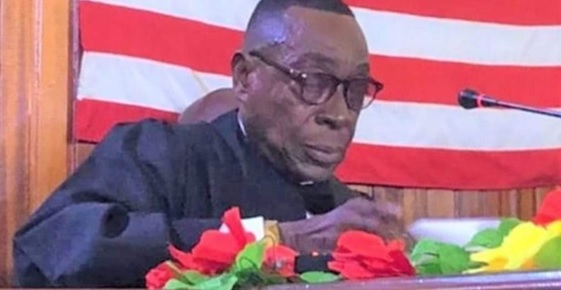Monrovia, Liberia – In a surprising turn of events, Cllr. Blamo Dixon, Resident Judge of the Criminal Court “C”, has come forward with serious allegations against President Joseph Boakai. Speaking as a guest speaker at the Induction and fundraising program of the leadership elect of the D. Twe Memorial High, Judge Dixon accused the President of engaging in practices of tribalism, nepotism, and favoritism when it comes to the appointment of public officials.
Judge Dixon’s accusation has sent shockwaves through the political landscape, raising questions about the integrity and fairness of the President’s decision-making process. The respected judge, known for his unwavering commitment to justice, did not mince his words as he criticized the President’s alleged actions.
“Tribalism, nepotism, and favoritism have no place in the appointment of public officials,” Judge Dixon passionately asserted during his speech. “These practices undermine the principles of meritocracy and equal opportunities, ultimately eroding public trust in our institutions.”
The specific instances and evidence supporting Judge Dixon’s allegations were not mentioned during his speech. However, his reputation for upholding justice and championing fairness lends weight to his words. It remains to be seen if additional information will surface to support or refute these claims.
The Office of the President has yet to respond to these serious allegations. As the news spreads, the public eagerly awaits a statement from the President or his spokesperson to address the matter.
The accusations of tribalism, nepotism, and favoritism in the appointment of public officials strike at the core of democratic values, signaling a potential crisis in governance. The public’s confidence in the administration’s ability to make unbiased and impartial appointments may be undermined if these allegations are substantiated.
As this story unfolds, it is imperative for both the accused and the accuser to present their cases and evidence. The people of the nation deserve transparency and accountability from their leaders, ensuring that public appointments are based on merit and the best interests of the country.
The outcome of this accusation could have far-reaching implications for President Joseph Boakai’s administration and the broader political climate. It remains to be seen how these allegations will be addressed and what impact they will have on the nation’s governance moving forward.








